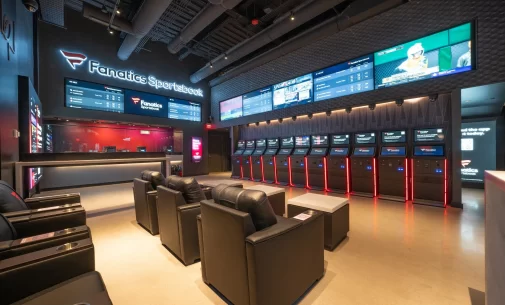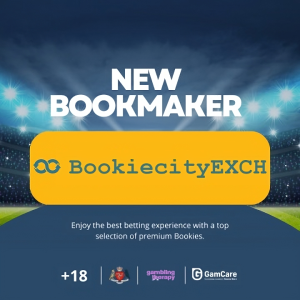As CEO of FanDuel, Matt King took a daily fantasy sports brand to the top of the US sports betting industry, and in the top job at Fanatics Betting and Gaming he’s looking to do it all over again. Not that he’s looking to emulate his former employers in leading the ecommerce giant; it’s Spotify that inspires him.
For Fanatics Betting and Gaming chief executive Matt King, the challenge he is taking on isn’t building a market leader. He’s already done that during his tenure at FanDuel, which is currently sitting with a seemingly unassailable market share across the US. Revenue there grew from $200m to over $1bn on his watch.
And his core goal isn’t to build an entity capable of taking on a behemoth he created. Instead the billion-dollar question is: how do you create something capable of providing a genuine alternative to consumers?
In a market dominated by iTunes, he’s looking to build Spotify.
Fanatics: Officially licensed everything
What separates Fanatics Betting and Gaming from other would-be disruptors is its parent company. It’s so big that you probably own something Fanatics created without even knowing it.
Valued at $27bn after a $1.5bn funding round in 2022, Fanatics has grown exponentially in recent years. Revenue reportedly topped $6bn last year according to media reports.
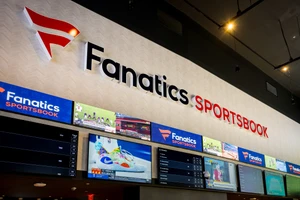
Expansive operations cover everything from trading card specialist Topps, headwear manufacturers Lids and sporting goods specialists Mitchell & Ness. Its tagline “officially licensed everything” is a fact, not a boast. Fanatics counts around 95 million sports fans in its database as a result.
It would be easy to assume this provides a similar competitive edge to the legacy daily fantasy operators that currently dominate US sports betting. The natural expectation is this means it reaches beyond existing bettors, a low-stakes, high-volume audience that hasn’t yet engaged with wagering. Only King doesn’t believe it’s possible to build a business targeting a single cohort.
“I think it’s false dichotomy,” he says. “One of the crutches we use as an industry is that there are people that are used to betting and people that are not.”
What he wants to do is to go after the existing market, with something new. It’s no surprise that Spotify is the inspiration.
“[They] grew by capturing people that were streamers already,” King explains.
“They did it because they built something that was an incredibly powerful product in a very intuitive way. So it was both easier for people that knew streaming in that it was easier for them to use, and for people that were new to streaming, they thought ‘oh I totally get how to use this’.”
“A great product is a function of both product and design”
Being able to start with a blank sheet of paper when it comes to building the core proposition certainly helps.
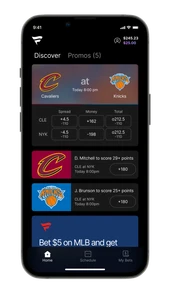
Using Amelco’s source code, the Fanatics Sportsbook has native iterations for iOS and Android. This takes advantage of the features each operating system provides, as well as making the apps more responsive.
But a strong product alone, supported by an expert trading team – plus the addition of PointsBet US subsidiary Banach’s trading and pricing (more on that later) – is not necessarily enough. Design also plays a massive part in the success, or failure, of a sportsbook.
“We’ve had a really good design from day one,” King said onstage at the SBC North America conference earlier this month. “Somebody explained to me a long time ago, a great product is a function of both product and design.
“The reality is the bias of most product managers is always to add more features, but when you get to the best products out there, they are the abstraction of what a customer wants to do in the simplest way possible.
“That’s why Apple works so well: it can do a lot, but in a very simple and intuitive way. It really is design thinking paired with a great product that does that. And it’s a lot easier to create that balance in a world where you’re starting from scratch.”
New perspectives to further sports betting
To achieve this, his top team is drawn from a wide pool. Yes, there are industry veterans, brought in from companies such as FanDuel, The Action Network, Sky Betting and Gaming and Sportradar.
But then there are executives from meal delivery giants DoorDash, electric transport business Lime and MTV Entertainment. King estimates that it’s probably a 60/40 split, with industry insiders the minority.
This comes down to Fanatics Betting and Gaming having the “luxury” of being a second mover in the US sports betting market, he says. It strikes a balance between industry experience and fresh perspectives from consumer technology businesses, giving it new ways to tackle problems.
“I think that diversity of perspective will ultimately unlock better thinking, and some different thinking,” King says.
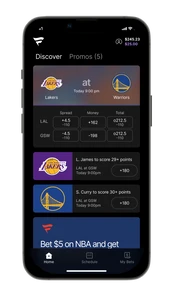
Can fresh eyes break the tension between speed and innovation?
Sports betting needs new thinking, he continues, as the industry hasn’t had time to draw breath since 2018. Currently 35 states allow some form of legal betting. The market will be worth $23.2bn by 2030, according to H2 Gambling Capital.
“I think the pace of legislation was pretty fast, probably faster than we expected,” King says. “I think one of the things that probably has surprised me though is there’s been a real tension between moving quickly and innovating.
“When you look at the US and other digital categories coming into the market, there’s a lot of reinvention and a lot of disruption. I think because sports betting was so well established internationally, a lot of what we’ve seen today is bringing the best practices internationally into the market with an emphasis on moving really fast.”
The next phase of growth will come from innovating, essentially “doing it better”.
“If we’re real with ourselves, when you ask consumers how satisfied they are with their sports betting app versus how satisfied they are with streaming or even payments apps, satisfaction scores are lower for the industry than other different categories,” he says of the US betting sector. “We as the industry have a satisfaction gap to close if we want be viewed as a category that’s on par with the best consumer technology.”
Fanatics’ approach ultimately centres around creating something on a par with the best consumer technology. “We’re building a broader digital sports platform,” King points out.
“Because of our overall ecosystem we can operate with a much longer-term perspective. As a second mover we’ve embraced the time advantage of being able to build a product right, not worrying about scaling as early as a first mover, and really leveraging that to prove you can build the best.”
A sports brand, not a gaming brand
That differentiation between building a digital sports platform and a sports betting platform is very important. Fanatics Betting and Gaming could become a market leader. Many believe it has all it needs to achieve this. But Fanatics is the name above the door and betting is just a piece of a much larger puzzle.
To King, that could be Fanatics Betting and Gaming’s biggest asset, a wider ecosystem of which betting forms a component. Many in the US are looking to create an interconnected ecosystem, whether that’s through media, entertainment or through other consumer products. Few lead the way across multiple categories in the way Fanatics does.

“We’re a sports brand, not a gaming brand,” he says. “That gives us a position with consumers, and brand permission, to do things that other people can’t do.
“I actually think it’s not just the ability to create the ecosystem, but it’s also the ability to have a brand that resonates with consumers in a way that allows you to actually deliver that to them in a compelling way.”
Having a database of 95 million sports fans to target at little to no cost certainly helps. But serving that audience is very different to embedding betting into that ecommerce ecosystem.
Surprise and delight
The only possible industry parallel is Sky Betting & Gaming, which built a thriving business with a largely casual, mass-market customer base. How? It’s essentially segmentation over targeting, King says. “They were incredibly customer-focused. Regardless of the type of consumer, they were really good at building a sportsbook that resonated with customers.
“Then with the Sky relationship, they were able build a different acquisition model that allowed them to be profitable with lower-stakes customers,” he adds. “It’s not so much that the business was totally focused on casual users.
“They were able to build a unique business model and, importantly, they had a product and an organisation which is incredibly customer-centric. And so they built a better customer experience.”
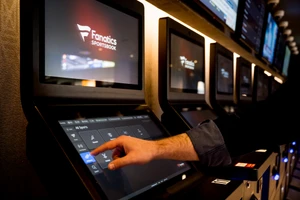
Of course, a sizeable collectibles business helps. If a big bet comes in on a certain player, Fanatics Betting and Gaming can send the customer a signed jersey as an added bonus. “It’s relatively low cost for us, but it’s a huge game-changer for that fan,” King says. “Those are the types of experiences we can create uniquely at scale.”
There’s Fan Cash, Fanatics’ loyalty currency, accumulated through every transaction with the business. Each time they bet, they earn Fan Cash, which can be used to buy merchandise or collectibles. And conversations over adding new brands outside the Fanatics family into that ecosystem are underway.
“Because we’re part of the Fanatics platform, we think we can offer a consumer experience that is differentiated and very hard to replicate, because fundamentally we can operate a different business model.”
Retail rollout
That different business model still has room for retail. That’s natural for a company operating stores on behalf of brands such as MLB and the NBA, not to mention events including the MLB All-Star Game, Kentucky Derby, NFL London Games, Euro 2020 tournament and NHL All-Star Game.
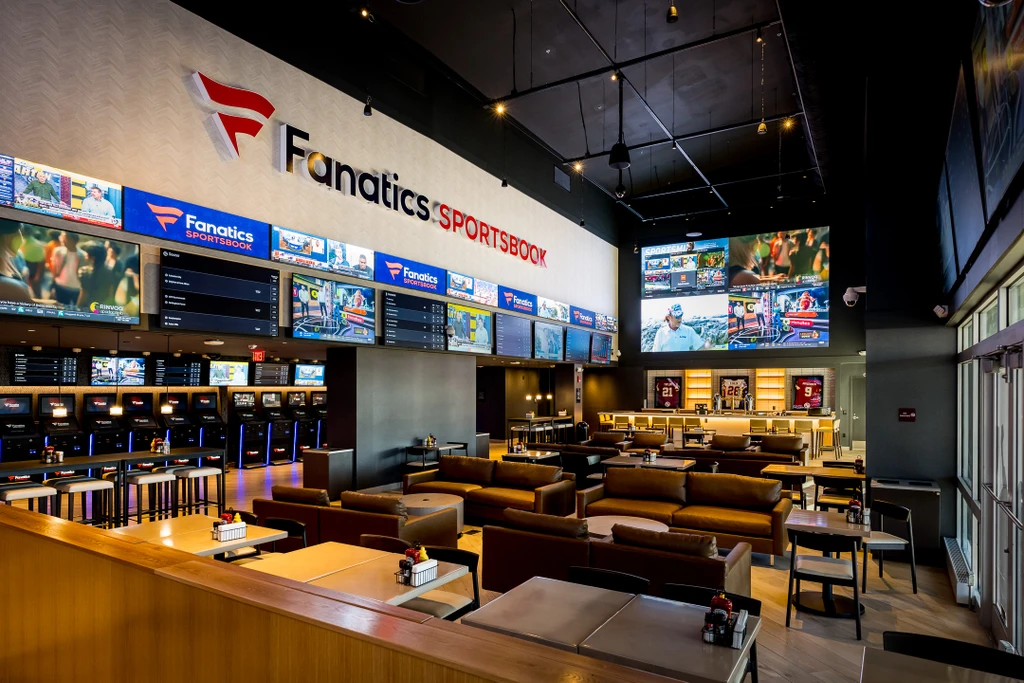
Currently Fanatics operates the NFL’s only in-stadium sportsbook, at the Washington Commanders’ FedExField in Maryland. In King’s eyes, retail is “funded marketing”.
“It’s a manifestation of the Fanatics brand, so it’s important, and for a number of customers that touch and feel is important if Fanatics operates 50 different in-venue retail locations,” he explains.
“There’s a lot you can do in a physical space, but it really is more about marketing and completing that experience than necessarily reaching a different audience.” If Fan Cash integrates the ecommerce experience with betting, retail connects another part of the puzzle.
Accelerating Fanatics’ expansion through M&A
But mobile, as with the wider sports betting industry, will be the main driver. The Fanatics Sportsbook app is live in Ohio and Tennessee on iOS and Android, for existing customers with an access code. Mobile is likely to be added in Maryland and Massachusetts by 5 June.
And thanks to the $150m acquisition of PointsBet US, King will soon be able to apply his new thinking to a much wider audience.
The deal provides access to sports betting licences in 12 states. Among those are major betting and igaming hubs, such as New York, New Jersey, Pennsylvania and Michigan.
There’s also the trading specialists Banach Technology, enhancing its core product, and a partnership with NBCUniversal’s NBC Sports arm thrown in.

This certainly accelerates King’s plans to create the sports betting Spotify, but he stresses it’s not a case of rushing. As he says, a second mover has the luxury of time and space to consider what works and act accordingly.
“I’m in this for 10 years. It’s a long-term play,” he says. “We can roll out states whenever we want to. I have access to all the states, I just roll them out when I’m ready.”
And we’re yet to see how he approaches online casino. After all, it’s Fanatics Betting and Gaming – it’s in the name. With access to Michigan, New Jersey, Pennsylvania and West Virginia, King has the opportunity to show it can compete across both verticals.
King is keeping it simple: “I think it’ll be a lot of the same themes,” he says of Fanatics’ icasino. “[Making] something that is as powerful as the products already out there, but simpler and more accessible for the user.”
Disrupting betting and gaming with consumer technology
King’s drive to execute these plans comes down to his entrepreneurial mindset. When FanDuel was acquired by Flutter, his departure was always a possibility, he says.
Joining Fanatics gave him the opportunity to achieve two things. One, to build something completely new. Two, to disrupt the betting sector with consumer technology.

A lot of that, he concedes, comes from the lessons learned at FanDuel and in his career before taking charge of that business.
“But fundamentally it’s a different strategy. It’s a different business model. So it’s really figuring out how the world has changed [in terms of the] opportunity, and the idea of building a broader digital platform is just different.
“So it’s working out, how do you adapt a strategy using those lessons? It’s a totally new kind of problem that we’ve been working on. Prior experience is absolutely critical, but it’s not a case of copying and pasting and doing the same thing.”
It’s not so much doing it all again. More the opportunity to create a new way of doing it.


